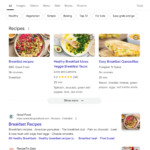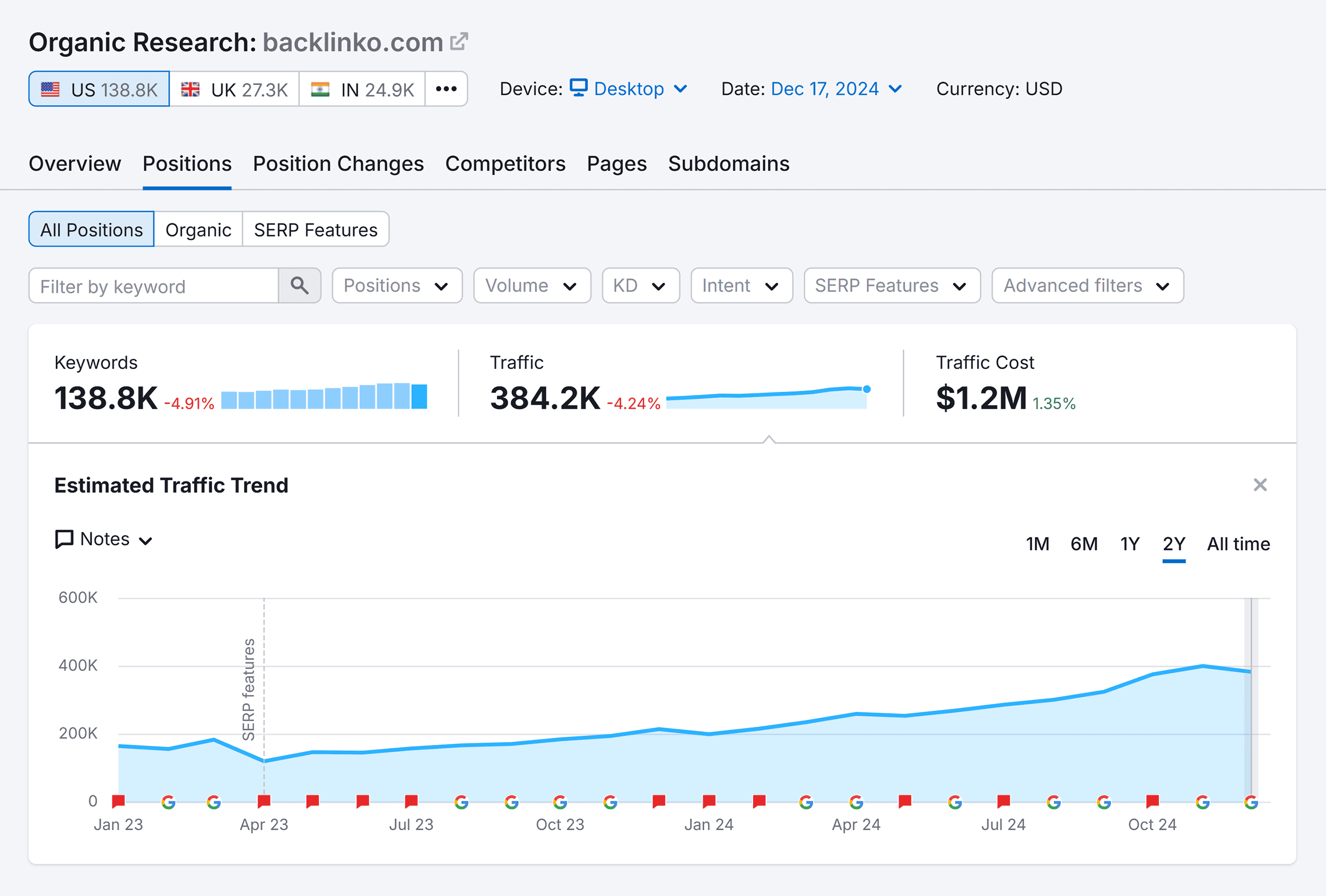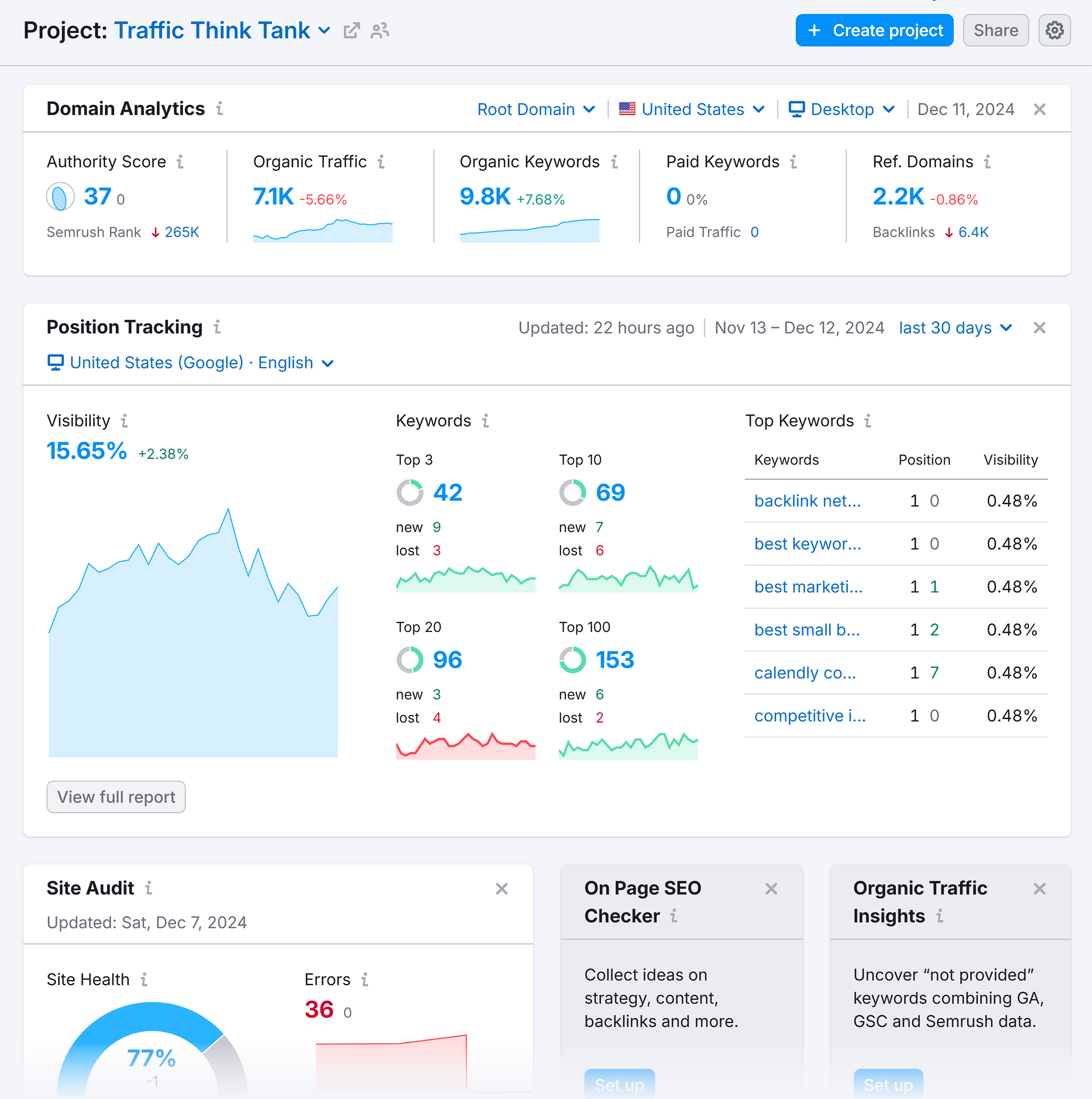Need help analyzing your competition to find ways to outperform them?
You’ve come to the right place.
Check out our list of the top competitor analysis tools for 2025.
How to Choose the <a href="https://bloggerseo.com.ng/3-disruptions-that-will-shape-your-content-and-marketing-strategy-in-2025">Right Competitor Analysis Tool
With so many competitive analysis tools out there, how do you choose the right one for your needs?
Consider the following:
- Features: Which aspects of your competitor’s business are you looking to analyze? This will help you determine which features to look for.
- Ease of use: Any tool you decide on should be fairly intuitive to use. You don’t want to waste your or your team’s time on learning how to use a complicated tool.
- Customer support: Look for software solutions that offer speedy customer support across multiple channels. Ideally, you’ll want to be able to reach a company’s customer support by live chat, phone, or email.
Usually, competitor monitoring tools focus on one aspect of competitor analysis (e.g., a social media competitor analysis). But there are also solutions like Semrush that offer a suite of tools for analyzing your competition.
Below, we’ve organized our favorite tools by category.
Best Competitor Keyword Analysis Tools
1. Organic Research
Semrush’s Organic Research is one of the best SEO competitor analysis tools to find out which keywords your competitors’ websites rank for. And how much traffic they could be generating through those keywords.
Here’s how to get started with it:
Enter a competitor’s domain in the search box, and the tool will generate a detailed report on your competitor’s website.
The “Positions” tab shows you all the keywords the entered website ranks for.

You can then filter the keywords by a variety of criteria, including search volume, keyword difficulty, and more. To find ones that meet your criteria.
There’s also an option to export the keyword list to an Excel or .CSV file.

What We Like
Organic Research allows you to see all the keywords competing websites rank for. Which provides you with plenty of data to improve your own organic search strategy.
It also lets you filter keywords based on a number of criteria. To help you find only the most relevant keywords for your website.
Pricing
You can try Organic Research (with limited access) when you sign up for a free Semrush account.
Access even more data with one of the paid plans:
- Pro ($139.95/month)
- Guru ($249.95/month)
- Business ($499.95/month)
2. Keyword Gap
Keyword Gap (also from Semrush) is a competitor keyword analysis tool that lets you uncover keywords your competitors rank for but you don’t. So you can find valuable terms you might be missing out on.
Compare your keyword profile against up to four competing websites. And review both organic and paid search keywords.
The tool will generate a report comparing all the keywords the entered domains rank for.
If you’re doing SEO keyword research, filter the report to only show organic search keywords.

To see keywords your competitors rank for but your website doesn’t, scroll down and select the “Missing” tab.

What We Like
The “Top Opportunities” section shows a quick overview of the top keywords you should be targeting. Which can help you prioritize your SEO and content marketing efforts.
Pricing
Keyword Gap is a part of Semrush’s suite of SEO tools, and you can try it out with a free plan.
More functionality is available with a paid plan:
- Pro ($139.95/month)
- Guru ($249.95/month)
- Business ($499.95/month)
3. Serpstat
Serpstat’s competitor analysis tools help you find out who you’re competing with in search engine results pages (SERPs). And allows you to uncover the keywords competing websites rank for.

You can use it to see which keywords competing websites rank for but yours doesn’t. And the platform has an option to set up position tracking for your competitors’ keywords too.
Serpstat supports tracking and analysis for both organic and paid search keywords.
What We Like
Serpstat gives you the ability to compare competing websites and pages on a per-keyword basis. To help you understand what it takes to rank for a specific term.
Pricing
You can use Serpstat’s free seven-day trial to test out the software.
If you’d like to continue using it after the trial period is over, you’ll need to opt for one of the paid plans:
- Individual ($59/month)
- Team ($119/month)
- Agency ($479/month)
Best Competitor Backlink Analysis Tools
4. Backlink Analytics
Semrush’s Backlink Analytics lets you examine your competitors’ backlink profiles in detail to see the number, type, and quality of backlinks for each competing website.
You can even filter for new and lost backlinks. And find websites linking to competitors that might be willing to link to you as well.

What We Like
Semrush’s Authority Score metric helps you understand the overall health of a competitor’s website. Which is largely influenced by its backlink profile.
The tool also lets you evaluate the quality of individual backlinks.
Pricing
You can try the Backlink Analytics tool with a free account.
Get more access with a paid plan:
- Pro ($139.95/month)
- Guru ($249.95/month)
- Business ($499.95/month)
5. Backlink Gap
Semrush’s Backlink Gap is a competitor backlink analysis tool that shows you which websites are linking to your competitors but not to you. And you can use this information to create targeted link building campaigns.
After you enter your own domain, enter the domains of your competitors (up to four), and click the “Find prospects” button. You’ll then get a list of link building opportunities.

What We Like
Backlink Gap’s filtering features help you prioritize link building opportunities by narrowing down to prospects that have the highest potential of driving a positive impact for your website.
Pricing
A limited version of Backlink Gap is available for free.
To unlock full functionality, you’ll need to opt for one of Semrush’s paid plans:
- Pro ($139.95/month)
- Guru ($249.95/month)
- Business ($499.95/month)
6. Site Explorer by Ahrefs
Ahrefs’ Site Explorer lets you review any website’s backlink profile. So you can learn how many backlinks your rivals have, which websites link to them, etc.
And you can analyze a subdomain or a specific URL.

There are also tools for things like finding a competitor’s broken backlinks, seeing which backlinks a competitor has lost, and discovering the anchor text a competitor’s backlinks use.
What We Like
Ahrefs’ backlink index gets updated every 15 minutes. So you’re able to get up-to-date information on competitors’ backlink profiles.
Pricing
You can try a limited version of Ahrefs’ Site Explorer tool for free. Paid plans provide more functionality, starting at $99/month.
Top Competitor Content Analysis Tools
7. Domain Overview
Semrush’s Domain Overview tool lets you analyze your competitors’ domains in depth. And shows you growth trends, organic and paid search traffic, and backlinks for any domain.
To use it, enter a competitor’s domain and click the “Search” button.
At the top of the first report, you’ll be able to see some key metrics related to the domain.

If you scroll down, you’ll see the domain’s traffic distribution by country. Plus traffic and keyword trends over time.

Other information available includes a breakdown of branded versus non-branded keywords, the entered domain’s top organic and paid search competitors, and a summary of the entered domain’s backlink types.
What We Like
There’s a vast amount of data available on every domain in Domain Overview’s index.
Pricing
You can try a limited version of Domain Overview with a free account.
It’s also included in the paid plans:
- Pro ($139.95/month)
- Guru ($249.95/month)
- Business ($499.95/month)
8. Similarweb
Similarweb lets you perform a comprehensive competitive analysis of any website. Among other things, it can show you a website’s:
- Total number of monthly visitors
- Most significant traffic sources
- Top pages
- Audience demographics and geographic breakdown

These tools help you get a detailed overview of competing websites and allow you to uncover insights that you can use to improve your own performance.
What We Like
Similarweb’s Organic Competitors feature can help you uncover competing websites you didn’t even know about.
Pricing
Similarweb offers a free seven-day trial you can use to test out the platform.
Paid plans include:
- Starter ($199/month)
- Professional ($449/month)
- Team (custom pricing)
- Enterprise (custom pricing)
Top Paid Advertising Competitor Analysis Tools
9. Advertising Research
Advertising Research is another competitor analysis tool from Semrush that shows you the ads your competitors are using, the landing pages their ads lead to, and how much your competitors are spending on paid search campaigns.
To get started with Advertising Research, enter a competitor’s domain to get a report that shows that competitor’s activity related to paid search.

To see the keywords your competitor is targeting through paid search ads, visit the “Positions” tab and scroll down to the “Paid Search Positions” section.

To check out the copy they’re using for their ads, visit the “Ads Copies” tab.

You can even get a list of the landing pages each ad leads to. Along with metrics related to each landing page.
What We Like
Advertising Research lets you review your competitors’ ads and landing pages. To get insights that allow you to replicate what may be working for them.
Pricing
Get limited access to Advertising Research with a free account.
For more access, try a paid plan:
- Pro ($139.95/month)
- Guru ($249.95/month)
- Business ($499.95/month)
10. SpyFu
You can use SpyFu to learn which keywords competitors are bidding on in their Google Ads campaigns.
The tool can show you how many clicks competitors are getting on their ads. And how much they’re paying for each keyword.

You can use it to generate a list of keywords competitors are bidding on but you aren’t.
SpyFu can also provide suggestions for unprofitable keywords you should exclude from your campaigns.
What We Like
SpyFu’s ad database goes back to 2006. Which means it can show you nearly every ad a competitor has used on Google Ads.
Pricing
You can get limited access to SpyFu for free.
They also offer the following plans:
- Basic ($39/month)
- Professional ($79/month)
11. iSpionage
iSpionage lets you find your competitors’ keywords, ads, and landing pages. And it can help you estimate their monthly spend.

The platform has data on ads for Google, Bing, and Yahoo.
It allows you to review the journey users take from acquisition to conversion. And there’s also an option to set up alerts to get notified when competitors make any changes to their ads or strategies.
What We Like
iSpionage’s Keyword Effectiveness Index and Ad Effectiveness Index metrics make it easy to identify the most profitable keywords and ad copy for your campaigns.
Pricing
You can try iSpionage for free.
To make the most of the platform, opt for a paid plan:
- Starter ($59/month)
- Professional ($99/month)
- Advanced ($299/month)
- Enterprise (custom)
Top Social Media Competitor Analysis Tools
12. Social Tracker
Semrush’s Social Tracker lets you keep track of your competition’s social media content and performance across Facebook, Instagram, X, Pinterest, and YouTube.
Plus, you can easily compare yourself alongside your rivals.
This provides you with information you can use to guide your own social media strategy.
What We Like
Social Tracker lets you perform an in-depth analysis of your competitors’ social media activity across platforms. Which saves time and consolidates your research in one place.

Pricing
Social Tracker is part of Semrush Social. Which starts at $29.99/month (on top of your monthly Semrush subscription).
13. Brand24
With Brand24, you can get notified anytime a competitor is mentioned on social media.
It supports mention tracking across popular social media platforms. Including Facebook, Instagram, X, LinkedIn, TikTok, and YouTube.
You can review mentions from a single location and filter them based on sentiment (positive, negative, or neutral).

There’s also the option to track each competitor’s social media reach and benchmark it against your own.
What We Like
Brand24’s intuitive mentions feed allows you to review brand mentions from a single location and act on them with a single click.
Pricing
Brand24 has a free trial you can use to test out the software for two weeks.
After the trial period is over, you’ll need to opt for one of the paid plans:
- Individual ($149/month)
- Team ($199/month)
- Pro ($299/month)
- Enterprise ($499/month)
14. Mention
Mention lets you track your competitors’ brand mentions online. And allows you to measure your competition’s share of voice against yours.
The software provides you with detailed insights into your competitors’ social media content, including overall sentiment, engagement, and more.

There’s also the option to set up instant alerts and get notified when a competitor is mentioned online.
What We Like
Mention makes it possible to find brand mentions from up to two years in the past. So you won’t miss out on any important mentions of your competition.
Pricing
You can try out Mention free for 14 days.
Paid plans include these options:
- Solo ($49/month)
- Pro ($99/month)
- ProPlus ($179/month)
- Company Plan (custom pricing)
Streamline Your Competitive Analysis Process
Competitive analysis is essential to any business’s success. And the tools you use make a difference.
You may need a combination of the options we shared, but it’s possible to get access to multiple tools with platforms like Semrush.
It all comes down to doing your research and considering your needs to find out which options are right for you.
The post Top 14 Competitor Analysis Tools appeared first on Backlinko.

![How I Use Landing Page Split Testing to Find Untapped Marketing Potential [+ 12 Places to Start]](https://bloggerseo.com.ng/wp-content/uploads/2025/01/how-i-use-landing-page-split-testing-to-find-untapped-marketing-potential-12-places-to-start-150x60.png)





